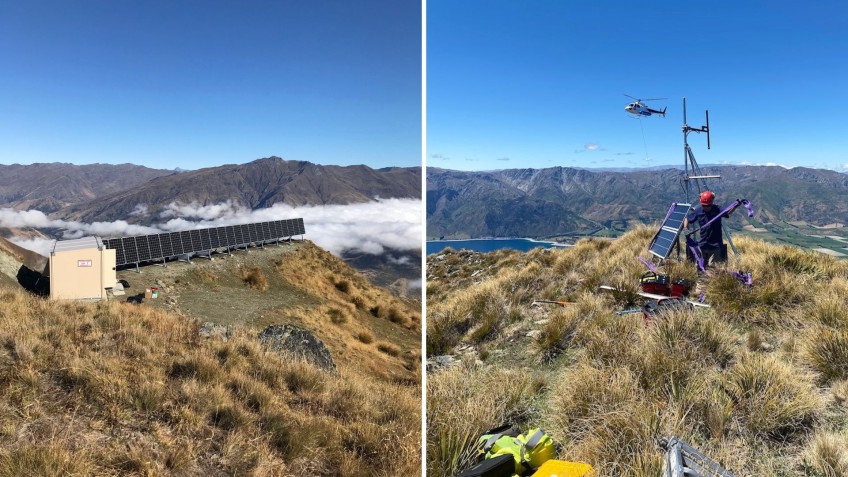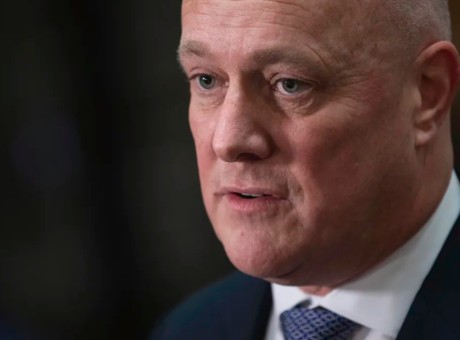Boaties' emergency radio channels at risk on Wānaka lakes

The work of a group of volunteers to keep a maritime radio service available to boaties in and around Wānaka is under threat.
Membership of the Upper Clutha Radio Telephone Users Association is dropping, and that means less revenue to keep the equipment running that delivers the radio service to remote waterways in the area.
The association is holding its annual general meeting on Tuesday at the tavern in Albert Town, and chair Ian Brown says closing down the operation is one option on the agenda.
So, what is at risk?
There is the original communications unit on Mt Roy - first installed in the 70s but revamped six years ago to allow solar charging to replace a vulnerable power cable up the hill. Then there is also a repeater - put in place more recently on Mount Maude above Lake Hāwea to widen the area of coverage to include well up the Hunter River.
Mr Brown says the set up has "saved many lives and been involved in many search and rescue operations" over its lifetime.
He says the group has raised up to $400,000 to install everything but without a regular source of income from users or the wider community maintaining the system is a major problem.
"For example, I had to go up the hill two days ago...we fly, we take a helicopter up there, so bang, there's $1,500 just for a trip up the hill and back to check a little fault. Costs are getting up there."
While the number of people willing to pay an annual fee to use the service has halved, Mr Brown believes the service is still very much needed.
"On Lakes Hāwea and Wānaka there are lots of dead zones with cell phones, but what you've got to remember with cell phones is it's one to one. If I'm in the poo up the lake and you are my contact I've got to get on my phone and ring you saying my boat is sinking."
The person on the end of the line could be miles away, he says.
"The thing about VHF is it's one to many. So I go 'mayday, mayday, mayday' and everybody on this lake who is using channel 66, who are all the commercial guys plus a lot of people who have their radios on, can hear me."
Channels 66 (Wānaka) and four (Hāwea and some Wānaka blindspots) are emergency channels for the area - important because international distress VHF channel 16, monitored 24 hours a day, is largely unavailable here.
It's a mountains-in-the-way thing.
"It works basically on line of sight, right?," Mr Brown says.
"In time, it's going to get more digital, using satellites and all that sort of thing, but at the moment what we have is VHF line of sight radio."
Coastguard Wānaka Lakes president Jonathan Walmisley says his organisation uses the two local channels.
"As do all boaties on the lakes."
While as an organisation he thinks Coastguard "could probably work around not having the channels", it "would be inconvenient".
Meanwhile Mr Brown has approached the Queenstown Lakes District Council to restart earlier conversations about whether the council has a role to play in the provision of the emergency radio service on Wānaka's lakes.
It is Mr Brown's understanding the council still supports provision of a similar service - on channel five - in the Queenstown area.
For him, it becomes a matter of "equality".
Crux has questions with the Queenstown Lakes District Council on the matter.
For further details on the Upper Clutha Radio Telephone Users Association's AGM, head to the association's Facebook page.
Main images (Supplied): The Upper Clutha Radio Telephone Users Association says it needs money to maintain its communications set ups that provide maritime radio to Wānaka lakes.

























